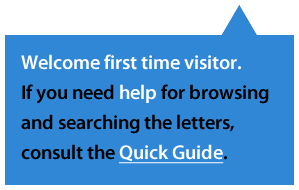1r:1
My dear Theo,
Yesterday evening I received your letter and the 100 francs enclosed. I can tell you that I’m now at a point where I can cover my deficit of last year, having had fewer expenses because of my stay here.
I point this out to you so that you can see from it how I dislike disorderliness in affairs as much as you do, and also insist on meeting my obligations to people.
And am in no mood to be indifferent to affairs — — on the contrary — that I assure you.
I’ll indeed really try to carry on with my work, and you mustn’t think that I’m any different from before as regards working every day here.
All’s well that ends well, says the proverb.
Now, as to qualms I wrote to you about, concerning continuing to accept money from you
1 on the same footing, we
can stop now at a moment when I can come away without a deficit; all the more reason that I cannot and will not do other than regard the way you’ve dealt with me financially as
generous. And if I had a deficit at the end of the year, I also in no way pretend that this was your fault. I say, however, that I’m glad that now, at this moment, there’s nothing unpaid to suppliers.
1v:2 I’ve honestly dealt with and paid suppliers of paint or whatever else.
2I owe a great debt to you, though, and I would make it worse and worse were I to continue on exactly the same footing.
Now I have a proposal to make for the future. Let me send you my work and you take what you want from it, but I insist that I may consider the money I would receive from you after March as money I’ve earned. And I don’t mind at all if it’s not as much at first as I’ve been receiving up to now.
For my part I say decidedly that, whatever you may think about what I’ve received from you so far, for myself I consider it as something that I’ll repay if possible. If things work out, I really will pay it off. There can be no question of that for the present, and so we won’t mention it.
Towards March I’ll send you some watercolours from here. I’ll take them to somebody else if you don’t want them,
but I’d rather do business with you. These watercolours will have errors, but still, I don’t think it’s foolish of me if I make a start on getting my work seen in order to send it into the world.
1v:3 Rappard did the same at a certain point, and carried it through from the moment he started it. As for me, I do it rather reluctantly, but I must do it.
And from March onwards I’ll start to send work here and there regularly. And to you first — but don’t consider yourself obliged to take something from me if you don’t really care for it yourself. I should think that this would mean that, however much our feelings may differ or come to differ, we wouldn’t even have to talk about it, much less quarrel.
Which in my view one does have to do if one has a relationship with someone such as ours has been up to now.
I repeat, I’d have qualms about continuing on the same footing. But I’d very willingly continue relations with you in a somewhat altered manner.
I’m not even saying that I want you to consider immediately that anything you might take from me is something that you’ll try to sell.
If, for the time being, you take work from me not so much in your capacity as a dealer but more in your capacity of having it in your heart to do something precisely for people like me, who are just setting out, that’s enough for me. But after March I don’t want to take money from you, or at least absolutely as little as possible, for which I haven’t supplied specific work.
1r:4 I couldn’t continue on the same footing with enthusiasm — but I’ll start on that other with enthusiasm the moment I believe that the former has to be cut off.
If you don’t want to enter into that other proposal, then you must leave it.
I do want to be free with you, but at the same time I want you to feel you’re equally free with me. If there’s something in my work that you like, it will give me great pleasure, and if you don’t like it and you would want to stay out of it, I can have nothing to say about it.
Moreover, whatever differences in feelings there may be about this or that, something that I hope really will remain is that we’re brothers and will conduct ourselves as brothers.
I also hope that you and
Pa won’t oppose me if I don’t take any studio other than the little mangle room here for the time being.
I’ll take another and no longer be in
Pa’s house as soon as my work produces enough for me to pay for a house again myself.
I don’t think there’s been a day since I’ve been here when I haven’t sat working with the weavers or peasants from morning till night.
I’ll be very pleased if you approve of my proposal. Then, in my view, we’ll avoid extremes and steer a steady course. If you know of something better, I’d like to hear it. Regards, and I thank you for what you sent.
With a handshake.
Yours truly,
Vincent
